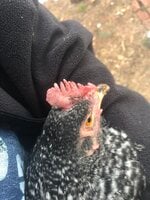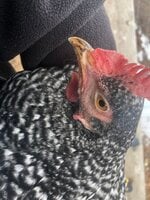autumnbee17
Chirping
I have had one hen start looking like this and then in a couple weeks pass away and I don’t know what I should do or even start at. She is a sweet chicken but hated being picked up but was fine when she got held and how she likes being held and wanting me to give her all my attention. This is the start of what my other hen did. I don’t know what to do. Her comb is also going a pale pink to me. Any ideas on what is going on?





